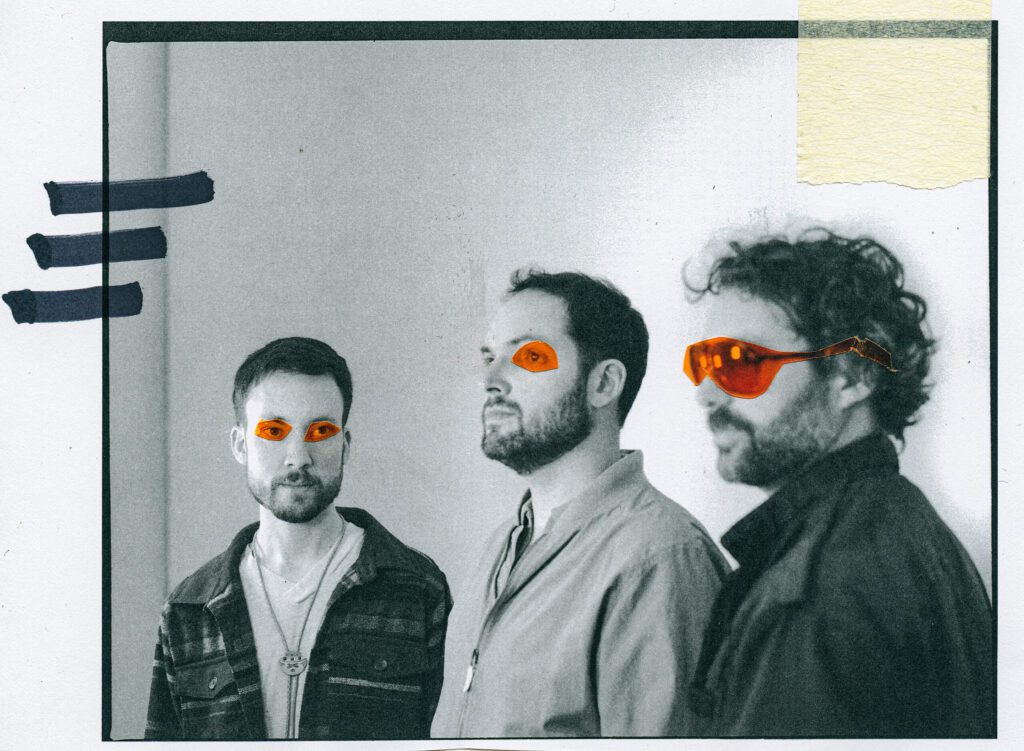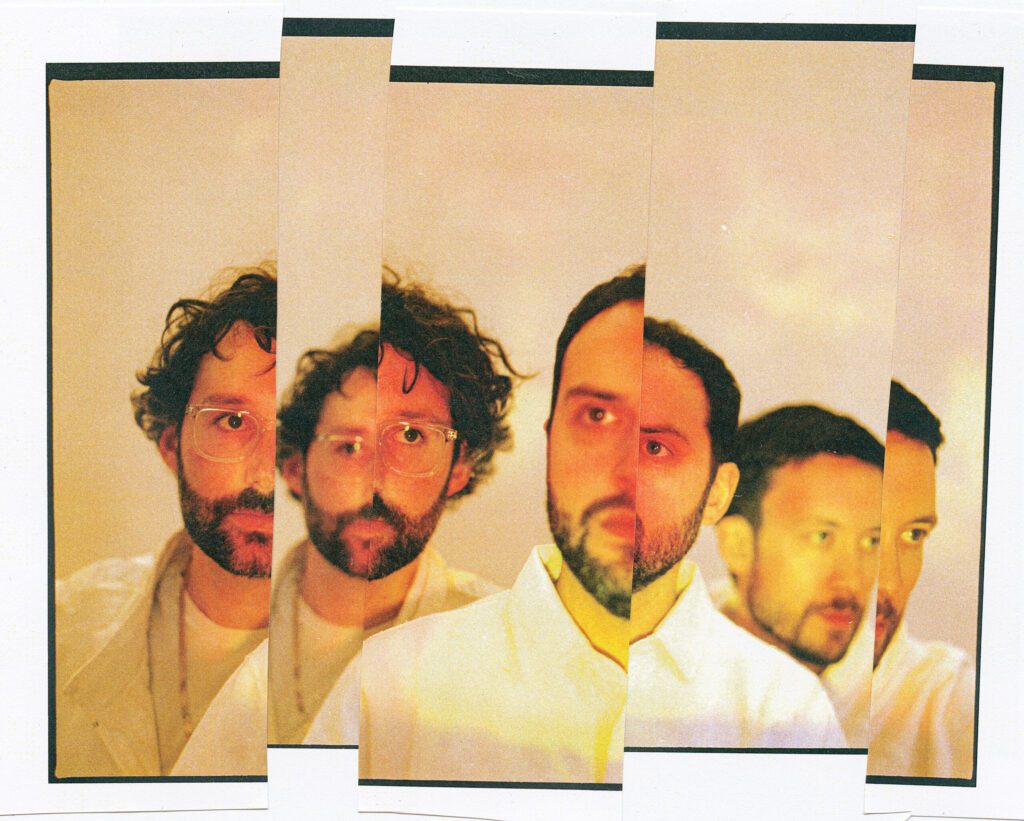As teenagers in their early days, they jammed together in their basement doing covers of Nirvana, Rancid and Rage. Today, they’re the epic force of indie electro-rock known as Jimkata. The trio of Evan Friedell (Vocals, Guitar, Bass, Synths, Lyrics, Production), Aaron Gorsch (Synths, Guitar, Production) and Packy Lunn (Drums, Percussion, Samples, Production) reunited in 2021 after a four year hiatus and are back on the road, bringing a fresh “wave of emotion and catharsis” to every show. Their recently released short film, Many Miles, is an unfiltered pov into their 2022 West Coast tour and the making of their pre-pandemic Bonfires LP, highlighting the unique journey of modern indie-band life.
SPIN caught up with Jimkata’s Evan Friedell to discover how the band came to be; how they forged their sound from an array of 80’s, 90’s and 2000’s influences; their definition of success through human-to-human connection rather than media metrics, and their view of the ideal future.
Stream Bonfires here and check out Jimkata’s SPIN Session below!
What is Jimkata and what made you want to become a band?
In a way I think Jimkata evolved pretty naturally out of a shared love of music between Aaron, Packy and I. Not to say there wasn’t a deliberate choice to be a band and pursue it eventually, but at first it really just came from jam sessions we’d have as teenagers in Packy’s basement. We all moved to different areas after high school and after a year or so we realized that we really liked the sound we had started creating together and Aaron and I relocated to Ithaca to meet up with Packy. I think we each get a deep sense of purpose and meaning from playing music that we can’t find anywhere else in life and in retrospect, that’s why we started pursuing it a little more seriously at that point.
Tell us about your sound – where does your style originate from and what have been your biggest influences? What genre(s), if any, do you identify with?
We’re in that weird generation that caught the end of the nineties where the musical explosion of grunge, hip hop and electronic music was turning into nu-metal, rap-rock and pop in the early 2000’s. We looked up to high school grunge and punk bands when we were kids and started out playing Nirvana, Rancid and Rage Against the Machine covers when we first met in middle school. Then there were jam bands like Phish and the Psychedelic Breakfast who toured through upstate NY often and turned us on to a whole scene we didn’t know existed. The idea of it being a different setlist every night with extended variations of certain songs seemed exciting. Eventually we got more influenced by artists like Beck, The Flaming Lips, Phoenix, LCD Soundsystem and TV on the Radio who were fusing synths and drum machines into well crafted songs and albums, creating their own unique sounds. And of course there’s a bunch of 80’s prog and new wave bands we’re influenced by and electronic and hip hop music that we absorbed. I could go on forever with this question so I’ll just say I don’t know what genre we identify with exactly but we started calling it “electro-rock” at some point. We’ve always just wanted to create a distinct sound that’s catchy, makes you wanna dance, sing along and forget about your troubles for a minute.
What ideas, processes, etc., have you been exploring lately to generate inspiration or new musical concepts?
Trying to strip song ideas down to their core before getting too caught up in the production side of things and adding more layers to it. Sometimes something we’re working on seems so driven by the instrumental track – the beat, bass line, synth melodies, etc.- that I need to take a step back and try to just play it by myself on guitar and see what’s really important. I’ve also been trying to allot myself an hour a day to just messing around on my guitar, playing with a loop pedal with no agenda and see if anything interesting comes up. Sometimes inspiration comes from thin air, like out of a dream or that moment where you’re in between the sleep realm and the awake realm, and a melody and words just drop in for a visit. Other times you need to do something to get into the creative flow. I find myself talking and thinking about flow and forward movement a lot lately.
How do you define and perceive success?
I think when you see a room full of people singing your songs back to you you’ve succeeded. When the music takes on a life of its own and becomes a part of other people’s lives in a meaningful way, that’s success. The current world is full of an overwhelming variety of metrics, data and analytics but to me when I see how it’s affecting people human to human in real life, I feel content.

What has been your biggest challenge so far as a band?
Just being able to do it at all as an independent band our whole career has been immensely challenging. Balancing our personal lives, working other jobs and still putting in the effort to advance creatively and career wise as a band is a struggle sometimes but ultimately rewarding. There’s so many hurdles to get over and so many different things asked of you as an artist in this day and age. You feel beholden to social media algorithms that often prevent you from reaching the followers you already have or to Spotify algorithms randomly deciding whether or not you’re getting on a playlist. You have to have patience, a level of gratitude and the ability to let things go and keep being you.
What’s next for Jimkata?
We just released a short documentary “Many Miles” that follows us along our first ever West Coast tour last year while also telling the story of how we created our album Bonfires and came back from a four year break. We showed it in an actual movie theater in Ithaca and put it out online after that. And we’ve been back in the lab, getting ready to put out some new tracks in the near future.
Where would you like to see the band in 5 years?
If we can be mostly doing this for a living and everyone’s enjoying life and healthy, I’ll be pretty happy.

